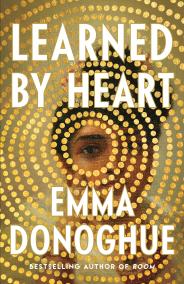Imagine Me Gone
Contributors
By Adam Haslett
Formats and Prices
Price
$9.99Price
$12.99 CADFormat
Format:
- ebook $9.99 $12.99 CAD
- Audiobook Download (Unabridged)
- Trade Paperback $18.99 $24.99 CAD
This item is a preorder. Your payment method will be charged immediately, and the product is expected to ship on or around May 3, 2016. This date is subject to change due to shipping delays beyond our control.
Also available from:
From a Pulitzer Prize and National Book Award finalist, a ferociously intimate story of a family facing the ultimate question: how far will we go to save the people we love the most?
When Margaret’s fiancée, John, is hospitalized for depression in 1960s London, she faces a choice: carry on with their plans despite what she now knows of his condition, or back away from the suffering it may bring her. She decides to marry him.
Imagine Me Gone is the unforgettable story of what unfolds from this act of love and faith. At the heart of it is their eldest son, Michael, a brilliant, anxious music fanatic who makes sense of the world through parody. Over the span of decades, his younger siblings — the savvy and responsible Celia and the ambitious and tightly controlled Alec — struggle along with their mother to care for Michael’s increasingly troubled and precarious existence.
Told in alternating points of view by all five members of the family, this searing, gut-wrenching, and yet frequently hilarious novel brings alive with remarkable depth and poignancy the love of a mother for her children, the often inescapable devotion siblings feel toward one another, and the legacy of a father’s pain in the life of a family.
With his striking emotional precision and lively, inventive language, Adam Haslett has given us something rare: a novel with the power to change how we see the most important people in our lives.
“Haslett is one of the country’s most talented writers, equipped with a sixth sense for characterization”-Wall Street Journal
“Ambitious and stirring . . . With Imagine Me Gone , Haslett has reached another level.”-New York Times Book Review
When Margaret’s fiancée, John, is hospitalized for depression in 1960s London, she faces a choice: carry on with their plans despite what she now knows of his condition, or back away from the suffering it may bring her. She decides to marry him.
Imagine Me Gone is the unforgettable story of what unfolds from this act of love and faith. At the heart of it is their eldest son, Michael, a brilliant, anxious music fanatic who makes sense of the world through parody. Over the span of decades, his younger siblings — the savvy and responsible Celia and the ambitious and tightly controlled Alec — struggle along with their mother to care for Michael’s increasingly troubled and precarious existence.
Told in alternating points of view by all five members of the family, this searing, gut-wrenching, and yet frequently hilarious novel brings alive with remarkable depth and poignancy the love of a mother for her children, the often inescapable devotion siblings feel toward one another, and the legacy of a father’s pain in the life of a family.
With his striking emotional precision and lively, inventive language, Adam Haslett has given us something rare: a novel with the power to change how we see the most important people in our lives.
“Haslett is one of the country’s most talented writers, equipped with a sixth sense for characterization”-Wall Street Journal
“Ambitious and stirring . . . With Imagine Me Gone , Haslett has reached another level.”-New York Times Book Review
-
Praise for Imagine Me Gone:Sam Sacks, Wall Street Journal
"Haslett is one of the country's most talented writers, equipped with a sixth sense for characterization and a limber, unpretentious style. Perhaps his rarest gift is the apprehension of the invisible connections that tie people together...The chapters seamlessly negotiate the passage of time...[Oldest son] Michael comes to dominate the narrative, and Haslett perfectly captures the qualities that make him both seductive and infuriating. He is a motormouth with a fitful imagination and a wicked sense of humor; his nervous energy and 'ceaseless brain' are the battery power on which the whole family runs...Haslett is alert to the reality of others, and the insinuating power of this novel comes from its framing of mental illness as a family affair. Michael's siblings are both wholly convincing characters, shaped by the abiding question of how much, or how little, they are meant to act as their brother's keepers...Most affecting of all is Margaret, who is treated with impatience by her children but possesses a capacious understanding...'What do you fear when you fear everything?' Michael wonders. 'Time passing and not passing. Death and life....This being the condition itself: the relentless need to escape a moment that never ends.' That condition, Haslett's superb novel shows, is an irreducible part of the fabric of Michael's family, as true and defining as the love that binds them."
-
"Ambitious and stirring . . . With Imagine Me Gone, Haslett has reached another level, affording readers a full and luminous depiction of a mind under siege . . . By putting the readers in the same position as [oldest son] Michael's family members, Haslett has pulled off something of a brilliant trick: We feel precisely what they feel-the frustration, the protectiveness, the hope and fear and, yes, the obligation. If Michael is on the page, if his thoughts or actions are laid bare, there's a grueling sense of dread. If he's out of sight, if his thinking and whereabouts are unknown, the dread becomes all but unbearable . . . This is a book refreshingly replete with surprise. It sneaks up on you with dark and winning humor, poignant tenderness, and sentences so astute that they lift the spirit even when they're awfully, awfully sad . . . But make no mistake, the novel's most rewarding surprise is its heart. Again and again, the characters subtly assert that despite the expense of empathy and the predictable disappointment of love, our tendency to care for one another is warranted . . . Even when it's difficult or terrifying or impossible, especially when it's impossible, the impulse to calm those we hold dear is an absolute privilege."Bret Anthony Johnston, New York Times Book Review
-
"Imagine Me Gone brilliantly captures the excruciating burden of love and the role it plays in both our survival and our destruction. Haslett suspends a sense of dread over you like an anvil from page one, cutting the rope that holds it in the brutal last act. You'd be a fool to look away."Julia Black, Esquire
-
"A richly drawn, Franzenesque canvas . . . Haslett's prose shimmers as he peers unflinchingly at the risks and rewards of fighting for love."O, The Oprah Magazine
-
"A devastating family drama . . . Haslett's considerable skills as a writer turn domestic conflicts into something more profound . . . In one beautifully rendered scene after another, Haslett shows the family dealing with John's illness and Michael's descent while also managing their own conflicts . . . Imagine Me Gone is a handsome work . . . the sort of writing that is guaranteed to turn heads."Michael Magras, Miami Herald
-
"Searing . . . Devastating and gorgeously written . . . Pure genius . . . Haslett hits the nail on the head when it comes to describing just how anguishing and time-consuming psychiatric disorders can be, not only for the afflicted but also for the flailing loved ones trying their damnedest-and failing-to find a suitable fix . . . Haslett writes with his eyes wide open about the pitfalls of piled-on medication, the panicked late-night phone calls, the cycles of fear, frustration, and guarded hope. And herein lies the kicker: Because these chapters are told from the alternating perspective of each of the five family members, we believe every word in them and bear witness to just how complex and multi-angled the issue of mental illness can be . . . By signing on with Haslett and his characters we are given the chance to look beyond our minutiae and daily distractions in order to notice the passage of time as experienced by others. We are reminded of what it is like to be truly, if fleetingly, alive."Alexis Burling, San Francisco Chronicle
-
"Powerful . . . Imagine Me Gone is a study of destructive family dynamics akin to Christina Stead's The Man Who Loved Children or Paul Theroux's The Mosquito Coast. Family here is a trap as filled with love and concern as it is with exasperation and dread. Moving with penetrating wit between the points of view of a father, mother, daughter, and two sons, the novel traces how the vein of mental illness running through this family affects every member . . . Haslett, as he turns the narrative over to first one and then the other, is uncanny in nailing how their differences in personality and temperament guide their respective actions . . . His sharp take on how minor family foibles become conflated with major family dysfunction introduces some unexpected comedy into the proceedings . . . Haslett expertly evokes family behavioral patterns that simply repeat themselves, taxing everyone's patience, before precipitating into panic-inducing crises . . . With its fugue of voices, each contributing a vital slant to the action, Imagine Me Gone offers rigorous formal pleasures. Yet while flirting with narrative artifice, Haslett stays keenly aware that in this family there is no explanation 'sufficient to account for the events . . . Lives weren't works of art.' In acknowledging that, Imagine Me Gone respects the mystery of how things happen the way they happen, while brilliantly conjuring the tide-like pull with which dreaded possibilities become harsh inevitability."Michael Upchurch, Boston Globe
-
"Drawing vivid scenes and compelling characters from a tragic realism, Haslett intimately connects the reader to his characters' inner lives . . . A rare, complex story [with] exceptional storytelling and poignant insights [and] uplifting moments of humor, kindness, and love."Don Oldenburg, USA Today
-
"An extraordinary blend of precision, beauty, and tenderness . . . Haslett's prose rises to the challenge, lushly capturing the dense fog of depression that blankets John [the father] and occasionally lifts just enough to reveal the 'beast' moving in on him. But Haslett really shows his chops channeling [oldest son] Michael's amped-up voice . . . I got caught up in the beauty of Haslett's sentences and the lives of these oh-so-human people bound by shared duress and cycles of hope. Haslett's signature achievement in Imagine Me Gone is to temper the harrowing with the humorous while keeping a steady bead on the pathos. You want sympathetic characters? You want a narrative that showcases love as a many-splendored thing capacious enough to encompass stalwart, long-suffering spouses, loyal siblings, suffocatingly obsessive crushes, and casual, noncommittal relationships (both gay and straight) that morph as if by magic into soul-sustenance? You want writing that thrums with anguish and compassion? It's all here."Heller McAlpin, NPR
-
"Smart and polyphonic...Haslett is that rare writer whose art can console without ceasing to be art."Boris Kachka, New York
-
"Adam Haslett's brilliant second novel captures two troubled minds with rare empathy, realism, and insight . . . [Oldest son] Michael is an utterly enchanting character . . . His every riff on music, feminism, and racism is seductive to the reader . . . It's a memorable, funny, and ultimately heartbreaking trip."Mark Athitakis, Minneapolis Star Tribune
-
"Haslett's second novel depicts, with candor and tenderness, a family's struggle with the effects of mental illness . . . Especially moving is Haslett's ability to anatomize the ways that a family contorts itself around one member's struggles."The New Yorker
-
"Haslett's second novel is a potent tale of love and loss . . . By its heartbreaking conclusion, we've come to know intimately the joys and struggles of each member of this troubled family."Jane Ciabattari, BBC
-
"An ambitious book about music, anxiety, and a family determined to stick together after fracturing loss, Imagine Me Gone is proof that realistic stories have immense power."Maddie Crum, Huffington Post
-
"Expansive and precise."Megan O'Grady, Vogue
-
"Compelling . . . An achingly realistic portrait of a family sucked into-and dry by-a mentally-ill loved one's spiral into darkness."Jenny Comita, W Magazine
-
"There are some books, and this is one, that grab you in the first paragraphs and don't let go, even when the last page has been read. Haslett is certainly not the first novelist to broach the topic of depression...But he's done so with such a fresh voice and playfulness of form...that the resulting novel begs a reevaluation of how we view and cope with tragedy."Keziah Weir, Elle
-
"Michael is an exceptional character...Haslett is especially adept at depicting the obsessive male psyche in the midst of a meltdown. But as this is also a series of deft vignettes of paternal, maternal and filial love, you too will likely be moved to recall your family with a new fondness and understanding.Edward Nawotka, Dallas Morning News
-
"A moving novel about how love and frustration shape the family dynamics of those affected by psychological instability . . . [Oldest son] Michael emerges endearingly precocious and quirky, recalling the children of J. D. Salinger's short stories . . . Imagine Me Gone is a character novel to be savored for its complex and empathetic portrait of family. Michael is a compelling character, witty and heartbreaking. This is not a novel driven by plot but by its relentless tides of sorrow and hope. Like his family, you'll soon see the inevitable end but only read faster as it hurtles closer."Kelsey Ronan, St. Louis Post-Dispatch
-
"Stunning...Beautifully written and filled with astonishing insight...Imagine Me Gone fulfills its considerable ambitions. It touches greatness, and its seamless interleaving of the deeply personal with the widely collective is one reason...Haslett's particular talent is to fuse the high to the low, the sardonic to the profound, cultural critique to human feeling, to achieve a seamless, polished whole. Imagine Me Gone accomplishes a complex feat."Melissa H. Pierson, Barnes & Noble Review
-
"Although depression and anxiety are foes that many authors have explored in the pages of literature, it is hard to think of a novel that presents as nuanced and intimate a portrait of these diseases as Adam Haslett's Imagine Me Gone. Told from the perspectives of each of the five members of the family, the novel offers a shockingly raw portrayal of how mental illness afflicts individuals as well as families, sometimes tearing them apart but also binding them closer. But to simply label this as a book about depression-however expert its portrayal-minimizes what Haslett has achieved. At its core, this is a pensive examination of the very human struggle to connect and find peace-with others and with ourselves-and the nature of time and how it passes. Haslett's keen eye for and rigorous examination of the intricate messiness of family dynamics calls to mind Jonathan Franzen's twenty-first-century masterpiece on intergenerational dysfunction, The Corrections, although Haslett's approach, while at times playful, is ultimately more tender and sympathetic. Imagine Me Gone is immensely personal and private, yet feels universal and ultimately essential in its scope. In its pages, Haslett has laid bare the agonies and ecstasies of the human condition and the familial ties that bind. The end result is a book that you do not read so much as feel, deeply and intensely, in the very marrow of your bones."Stephenie Harrison, BookPage
-
"In this moving novel, Haslett explores how the profound depression of one person reverberates through an entire family. This beautiful, tragic, engrossing depiction of a web of emotional fault lines should win Haslett an even wider readership."National Book Review
-
"We come to know the family at the center of Adam Haslett's powerful new novel as intimately as if they were our own . . . Imagine Me Gone is the story of this family across the decades-a family that is bonded and riven and bonded again by mental illness . . . [Oldest son] Michael is the center of the novel and certainly Haslett's most original character . . . For the reader, as for his family, Michael is strangely dear, utterly maddening, and ultimately heartbreaking."Tom Beer, Newsday
-
"Moving and courageous."Danielle Groen, National Post
-
"With skill and subtlety... Imagine Me Gone sweeps the reader into its characters' worlds and makes us reflect on our own lives. It might be the best American novel about a middle-class family since Jonathan Franzen's The Corrections."Max Lui, The Independent UK
-
"Haslett deftly explores the many different shapes and forms that depression can...his strength lies in encapsulating the darkness that enshrouds the main characters' brains by making tangible the hopelessness that depression often induces in its victims...Imagine Me Gone paints a brand new, innovative picture of depression that demands to be felt."Mila Gauvin II, The Harvard Crimson
-
"A book everyone can identify with . . . Adam Haslett has described a family that is true, funny, and tragic. Imagine Me Gone is beautifully conceived and composed."Tracy Sherlock, Vancouver Sun
-
"Imagine Me Gone is a family saga reminiscent at times of Anne Enright's The Green Road. It is raw, tender and hilarious. In the writing of Michael, the Pulitzer Prize-shortlisted Haslett lets rip to dazzling effect: a family therapy session, related by Michael in the form of an Army incident report, is a showstopper. But the voices of the novel's other narrators are equally involving, and the psychological insight piercing. True, the emotional demands are considerable. But the investment more than pays off."Stephanie Cross, Daily Mail UK
-
"(A) skilfully written and harrowing tale. Any reader dealing with mental illness in the family will immediately recognise the place where love and obligation meet constant anxiety and intermittent despair. This novel plants its flag somewhere in the middle ground between Jonathan Franzen's The Corrections and Eugene O'Neill's Long Day's Journey into Night."Kerryn Goldsworthy, The Sydney Morning Herald (Australia)
-
"Haslett has a great gift for capturing the strikingly different inner worlds of his characters and rendering them in beautiful prose. As in Faulkner, each of the voices emerges from somewhere between speech, thought and writing, but here the characters are articulate enough that we can believe that the words are theirs. There is a lot about honour and care here: about what it means to honour and care for both ourselves and those we love. Haslett's prose, so finely adapted for each of the characters, seems to do just this, honouring the living and the dead and rendering life precious enough that Alec, falling in love, can find that the gift of the present moment 'set me afloat, leaving me light-headed and close to joy'."Lara Feigel, The Guardian UK
-
"Haslett has already produced a quiveringly sensitive body of work that stands as a moving testament to the persistence of love in the face of the adversities occasioned by diseases of the brain -- a love personified in Imagine Me Gone by Margaret, who learns of John's condition during their engagement but marries him anyway, and by Alec, who is all too aware of Michael's increasingly precarious state of mind but longs to save him... With his crystalline sentences and uncanny knack for inhabiting the minds of his characters, channeling their distinct voices with the otherworldly insight of a spiritual medium, Haslett has become a master."Kevin Nance, Poets & Writers
-
"The characters are richly developed and rendered with an incredible emotion that makes this an intense and devastating story of pain, anguish, and ultimately healing."Jean Moore, Ventura County Star
-
"Haslett has created a distinctive and winning voice and character [in Michael] that transforms what might have otherwise been just-another-accomplished-literary-novel about an American family's tragicomic goings on into something far more affecting and beguiling. ... The result is a tour-de-force of manic brilliance, both zealously funny and painfully sad."Randy Boyagoda, Financial Times UK
-
"The quality of Haslett's character portrayals, his language, and his scene construction in Imagine Me Gone are apparent enough, but the way you know this book is going to stick around for a while is that not one word is wasted."Rich Smith, The Stranger
-
"Breathtaking....Imagine Me Gone glides over unfathomable depths of feeling. Haslett does the tough work of affirming love, while acknowledging that some wounds run too deep for love alone to heal."Charles McRory, Daily Mississippian
-
"In Imagine Me Gone, Haslett describes the state of [the father] John's troubled mind with compassion and artistry. But even more moving is his characterization of Michael, the eccentric eldest child who has inherited John's disease . . . As a meditation on mental illness and its reverberations, the novel is generous and honest."Rachel Giese, Chatelaine
-
"Imagine Me Gone is beautiful, it's terrifying, it's intimate and epic, and it's devastating -- one of the great books about loss and mourning and the ineluctable laws that govern the political economy of families. I cannot describe the force or the depth of its accomplishment except to say that this magnificent work of art has overwhelmed me and broken my heart."Tony Kushner, Pulitzer Prize winner for Angels in America
-
"Imagine Me Gone is literature of the highest order. It manages to be both dreadfully sad and hilariously funny all at once. It is luminous with love."Peter Carey, Man Booker Prize winner for True History of the Kelly Gang
-
"The family Adam Haslett has created in Imagine Me Gone feels as true and as complex as our own actual families are, and lays nearly as deep a claim upon our love and loyalty. The eldest son, Michael, is simply one of the finest characters I've ever come across in fiction. This beautiful, tragic novel will haunt you for the rest of your life and you will be all the more human for it."Paul Harding, Pulitzer Prize winner for Tinkers
-
"This novel about family, love, forgotten music, and a despair that proves unbearable has one of the most harrowing and sustained descriptions of a mind in obsessive turmoil and disrepair that I've ever read. Haslett is a marvelously lucid and intelligent writer."Joy Williams, Pulitzer Prize finalist for The Quick and the Dead
-
"Imagine Me Gone is a beautiful, elegant, harrowing story of the dissonant music of family, a poignant book that makes you eager, once more, for the complications of the world."Colum McCann, National Book Award winner for Let the Great World Spin
-
"A captivating portrait of the ways depression and anxiety mark both the afflicted and everyone who loves them. Haslett has an uncanny talent for shifting between the voices and sensibilities of his characters. It is with Michael that his gifts are most in evidence. These anarchic chapters are by turns mordantly funny and heartbreaking. The forces of love and loyalty that bind the siblings together rescue Imagine Me Gone from all consuming sadness. Haslett understands the power of sentiment to move without ever becoming maudlin or arch, leading us down a dark path at the end of which a light of hope still burns."Patrick Flanery, The Spectator UK
-
"Suffice it to say that Imagine Me Gone is a complex, nuanced portrait of a family dealing complex, nuanced issues. Haslett's story touches on numerous topics-growing up, heredity, familial interaction, masculinity, and perhaps above all mental illness. Haslett's portrayal of the family's eldest son is a thing of beauty. Central is the question of how we help those we love and how our "help" is shaped by our own interests and the limits of our own understanding. His story illuminates. It will stick with you."Frank Valish, Under the Radar
-
"Imagine Me Gone has a moral compass installed so deeply that it never has to announce itself or pause to moralize . . . It's if its author's sensibility has entered Jonathan Franzen's airspace with some daredevil if psychically grounded skywriting . . . Haslett's language has been scoured of argot, and treats the platitudes of therapy like death threats. All five family members tell this story, not in turn but compellingly in sequence, in their own words, words so pitch-perfectly their own that they scarcely need physical description to walk right off the page . . . Much of Haslett's deep seriousness is wrapped in the language of high comedy, black as it is . . . Haslett's infinitely subtle, insinuating novel is a work of art."Tim Pfaff, Bay Area Reporter
-
"An aching, psychologically astute novel . . . Michael is the animating spirit of the book and its central conundrum, a figure at once half-deranged and brilliant, stymied and restless, utterly self-absorbed and yet pseudo-empathetic to the point of pathology . . . Imagine Me Gone confronts the moment when the motion finally stops, when the mind's wheels spin and squeal against the skull until a person breaks apart, his family looking on helplessly, haunting him and haunted by him."Jessica Winter, BookForum
-
"For all its elegiac tone, one of the most striking features of Imagine Me Gone is the wicked humor that surfaces in portions of Michael's narrative. Whether he's describing a nightmarish transatlantic crossing or recounting a group counseling session, he's skilled at skewering life's absurdities with sharp wit. For all the darkness that swirls around him, his winning personality makes him the novel's most appealing character."Harvey Freedenberg, Shelf Awareness
-
"A triumphant and transcendent novel of family and the things we pass down through the generations . . . With his extraordinarily economical and observant prose, Haslett fully inhabits each of these characters. By the time the children are grown, you feel as if you've matured beside them-as familiar with their tics and emotional intricacies as your own kin. The book is tender, often beautiful, sometimes emotionally searing, and, at times, surprisingly funny. [Oldest son] Michael's chapters can be particularly hilarious . . . But they are more than comic relief. These endearing sections of Imagine Me Gone, beside chapters detailing his siblings' and parents' difficulties of dealing with his mental illness, mirror the inevitable ups and downs of love and family."Andrew Travers, Aspen Times
-
"This touching chronicle of love and pain traces half a century in a family of five, from the parents' engagement in 1963 through a father's and son's psychological torments and a final crisis....Each chapter is told by one of the family's five voices, shifting the point of view on shared troubles, showing how they grow away from one another without losing touch....Haslett shapes these characters with such sympathy, detail, and skill that reading about them is akin to living among them....As vivid and moving as the novel is, it's not because Haslett strives to surprise but because he's so mindful and expressive of how much precious life there is in both normalcy and anguish."Kirkus (Starred Review)
-
"Haslett narrates this soaring, heartrending novel from the revolving points of view of each family member, plumbing the psychologies of his characters. The result is a polyphonic page-turner that slowly reveals its orbit around Michael, the eldest son. Michael's troubled psyche, an inheritance from his father, proves to be the troubling linchpin at the center of this intensely personal work."Booklist (Starred Review)
-
"Haslett's latest is a sprawling, ambitious epic about a family bound not only by familial love, but by that sense of impending emergency that hovers around Michael, who has inherited his father John's abiding depression and anxiety....This is a book that tenderly and luminously deals with mental illness and with the life of the mind....In Michael, Haslett has created a most memorable character. This is a hypnotic and haunting novel."Publishers Weekly (Starred Review)
-
Praise for Union Atlantic:Esquire
"The first great novel of the new century that takes the new century as its subject...It's big and ambitious, like novels used to be. It's about us, now. All of us." -
"Adam Haslett may be our F. Scott Fitzgerald...A profound, strikingly intelligent story."Washington Post
-
"Exceedingly well written...a high-spirited, slyly astute exploration of our great bottoming out."The Boston Globe
-
Praise for You Are Not a Stranger Here:New Yorker
"Haslett is an eloquent, precise miniaturist, and his characters' struggles with their own assumptions collectively provide a fascinating snapshot of life during the era of Prozac, when new ways of thinking about emotion have forced us to adjust our notion of identity and even, perhaps, of grace." -
"Spectacular. . . . You should buy this book, you should read it, and you should admire it. . . . [It] is the herald of a phenomenal career."The New York Times Book Review
-
"Haslett possesses a rich assortment of literary gifts: an instinctive empathy for his characters and an ability to map their inner lives in startling detail; a knack for graceful, evocative prose; and a determination to trace the hidden arithmetic of relationships."New York Times
-
"Extraordinary. . . . Frighteningly tender. . . . Displays an order as natural as a tree branch in winter-lithe and achingly austere."The Boston Globe
-
"The greatest of this novel's many strengths is Haslett's uncanny gift for inhabiting the consciousness of five enormously complex characters....Imagine Me Gone is not a traditionally plotted novel but a psychological character study, written with the kind of patient intricacy one associates with 19th-century realists like the Russian masters or George Eliot - or, in contemporary American literature, Jonathan Franzen (Haslett's former teacher).....Adam Haslett is a writer of prodigious gifts, the greatest among them a deep compassion for his most flawed characters, and the courage to go with them into the abyss and bring their stories back to us with uncommon grace and boundless empathy."Ed Tarkington, Nashville Scene
-
"Haslett proves frightengly capable in capturing the sense of duty and purpose in spreading the gospel of a beloved band that's typical of the musically obsessed, and through the painful course of the novel, cuts a sharp figure of their hearts."Dylan Owens, The Denver Post
-
"In his devastating and gorgeously written novel, Haslett hits the nail on the head when it comes to describing how anguishing psychiatric disorders can be."San Francisco Chronicle
-
"[Imagine Me Gone] shifts confidently between heartbreak and cathartic laughter...with a calm, forensic mastery."Wall Street Journal "20 Books that Defined Our Year"
-
"At once the most beautifully written and yet most harrowing novel of the year so far....Imagine Me Gone is that rare thing in fiction: a book that breathes fresh life into the oldest story of all, that of the dysfunctional family, and invests it with a powerful sense of the love that binds such families together, for good and ill."Chicago Tribune
-
"This book is tragic, no question - but it's also poignant, tender and funny."Mary Ann Gwinn, Seattle Times
-
"Succeeds on just about every level that a book can...It's a stunning novel, written with compassion, and it ends where it has to-Haslett is a fearless writer, refreshingly unafraid to confront darkness. That's not to say there's no light in Imagine Me Gone; it is, in the end, a book about love and about survival. And it's unquestionably one of the truest and most beautiful novels of 2016."Michael Schaub, LitHub
- On Sale
- May 3, 2016
- Page Count
- 368 pages
- Publisher
- Little, Brown and Company
- ISBN-13
- 9780316261364
Newsletter Signup
By clicking ‘Sign Up,’ I acknowledge that I have read and agree to Hachette Book Group’s Privacy Policy and Terms of Use







